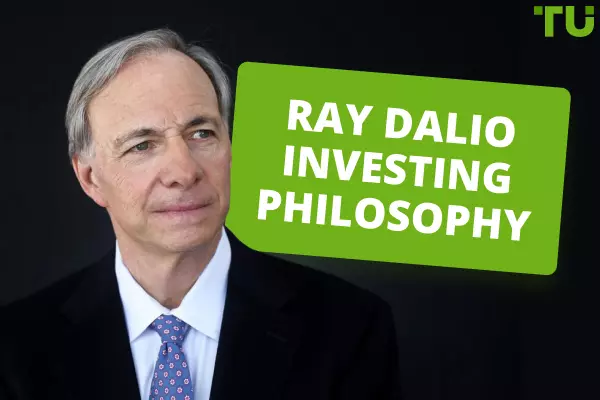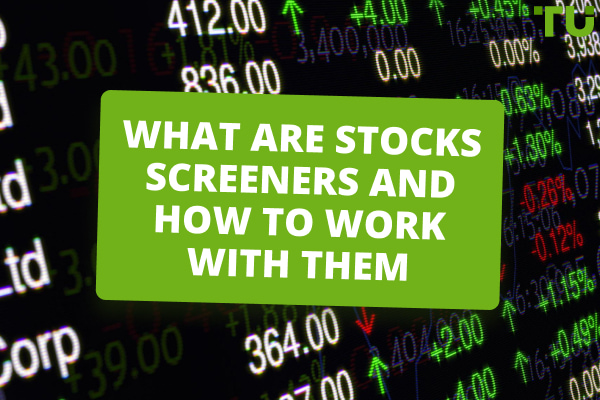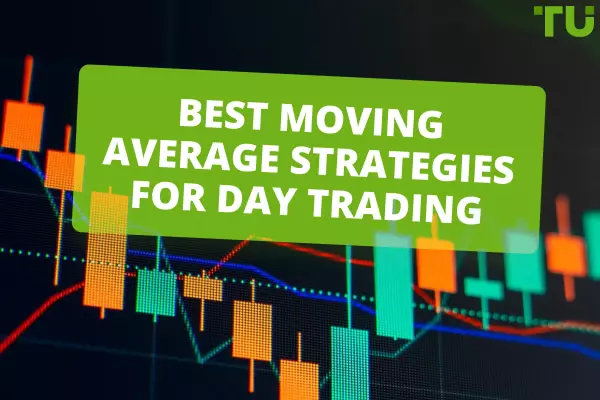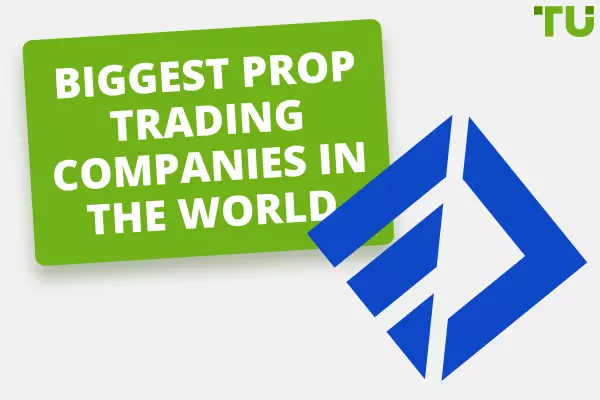Private Traders | Understanding Their Work And Role
A private trader is an individual who doesn’t represent any institution and trades using their own capital.
In the world of trading, there are private traders and institutional traders who participate in various financial markets. Though the definition of private traders can be quite broad, there are specific aspects to private traders that you should know. Traders Union has got you covered, as we define private traders, look at how private traders make money, explain the challenges and benefits of being a private trader, and break down regulations for private traders.
Start trading Forex and Stocks now with RoboForex!Defining private traders
To understand what a private trader is, we should first look at what a trader is. A trader is an individual or entity that engages in the buying and selling of financial instruments, such as stocks, bonds, commodities, or currencies, with the aim of making a profit. Traders can operate independently or on behalf of institutions, and they use various strategies and analyses to make informed trading decisions. The goal of trading is to capitalize on market fluctuations and price movements to generate financial gains.
A private trader is an individual who doesn’t represent any institution and trades using their own capital. Basically, anybody of legal age can be a private trader. You yourself can be a private trader, your friends can be private traders, even your grandmother can be a private trader! All an individual needs is a small amount of capital, as well as a device that can access the internet, and they can get started as a private trader.
An institutional trader on the other hand, represents an organization or institution that trades on behalf of itself or its clients. Examples of institutional traders include hedge funds, investment banks, pension funds, and other financial institutions. Institutional traders often deal with large volumes due to their comparatively large amounts of capital, so may have different trading strategies compared to individual traders.
The goals of private traders may vary slightly, but overall, the aim is to make money. One private trader might invest in the stock market with the hope of making small gains over time to build up a retirement fund, while another individual might engage in day trading to generate a living instead of working a 9-5 office job. Others may want to supplement their income with a “side hustle” and some might be aiming to get rich so they can retire early. The motivation behind each private trader’s actions varies as much as the different life ambitions of individual people.
How does a private trader make money?
Thanks to modern technology, such as a globally connected internet, powerful smartphones and space-bound satellites, it’s possible for us to be connected to the wider world from almost anywhere on planet Earth. Traders can use this technology to make money from almost any location, using a variety of tools and resources. Here’s how today’s technology helps private traders to make money.
Before the age of the internet, traders were required to visit offices or make phone calls to brokerage firms to place trades, whether that was for stocks or foreign currencies. Major financial centers served as hubs where traders could congregate during market open hours to process their trades.
Today, traders have access to a plethora of online brokers and platforms which facilitate the buying and selling of various assets. The whole process is streamlined and a trader in one country can access all international markets from one location, allowing them to trade at any hour of the day. A trader in London could trade on the New York stock exchange or stick to the London one.
The ease-of-access provided by the internet has also led to the rise of the “retail investor”. Retail investors are non-professional market participants, so essentially are the same as private traders. According to the SEC in 2020, “American households own $29 trillion worth of equities—more than 58% of the U.S. equity market—either directly or indirectly through mutual funds, retirement accounts, and other investments”. The rise in the percentage of assets owned by private/investors is being propelled by expanded access to technology.
Decades ago, investing was only accessible to professionals and institutions. Now, almost anybody can become a market participant. Traders can open a brokerage account with the broker of their choice, and after depositing a small amount of capital, can begin trading from the comfort of their own home.
On top of this, access to educational information means that with the right attitude and enough drive, anybody can become an expert in trading. There are literally millions of articles, videos, audiobooks, eBooks, and more, dedicated to the art of trading, allowing people from all backgrounds to learn about and understand how to trade various assets. Learning about how markets work is vital to succeeding as a trader, so modern technology is creating a whole generation of them.
Risks and rewards of private trading
When engaging in trading as an individual, rather than as part of an institution, the main risk is that you are using your own capital. A private trader invests his hard-earned money and stacks it on the performance of the stock market or on international exchange rates. This puts them at a larger risk of losing money that they can’t afford to, particularly if they aren’t an experienced and well-studied trader. Private traders face several risks that institutional traders wouldn’t necessarily have to deal with:
-
Market volatility. Exposure to unpredictable price movements in financial markets can take a toll on private traders
-
Emotional Stress. Being a private trader comes with its own psychological challenges. Managing the stress of incurring losses and having to make decisions that affect your own capital can be mentally arduous
-
Lack of Resources. A private trader has less access to capital than an institutional investor. Beginning with lower capital means smaller potential profits
-
Overtrading. Excessive trading can lead to increased transaction costs and risks. A private trader with access to trading 24/7 is at a higher risk of overtrading
-
Complete loss of capital. If an institutional investor makes some bad trades, the body they represent isn’t likely to go bankrupt. If a private trader sees negative returns, they risk losing all of their capital
Of course, there are also multiple benefits to being a private trader over an institutional one, such as:
-
Flexibility. A private trader has the freedom to trade on his own terms and schedule
-
Personal profits. All profit generated belongs to the personal trader and they can generate their own income
-
Learning opportunities. They are continuously learning and developing their trading skills. Their motivation to learn more may be stirred by their desire for personal profit
-
Portfolio Control. Private traders have full control over the composition and management of their portfolio
-
Diverse Markets. They can diversify their portfolio with assets in the stock market, crypto, or Forex. They aren’t limited to certain markets like an institutional trader might be
How many private traders make money?
The rate of success for traders varies greatly when consulting different sources, but the general consensus seems to be that roughly 80% of traders do not succeed. Multiple online sources put the rate of traders who succeed at anywhere from 1% to 8%. Regardless of the specific numbers, it’s safe to say that the vast majority of traders do not make a profit – which is why it’s critical that you aim to be part of the minority who do succeed.
There are several factors that increase the chances of success. Discipline plays a huge role in an overall successful trading career. A carefully planned risk management strategy is also key. In general, the best things you can do are to learn as much as possible, plan out your entire trading strategy, and then stick to it - even when emotions run high.
The regulatory landscape for private traders
The regulatory landscape for private traders is complex and encompasses a mix of national and international regulations designed to ensure fair and transparent financial markets. Various regulatory bodies, such as the Securities and Exchange Commission (SEC) in the U.S.A, or the Financial Conduct Authority (FCA) in the UK, set rules to protect investors and maintain market integrity. Compliance with these regulations is crucial for private traders, as violations can lead to legal consequences and financial penalties.
Financial literacy and education play a crucial role in empowering individuals entering the trading arena. Understanding various markets, risk management models, and regulatory requirements is essential for making informed decisions. Educational initiatives, online courses, and resources provided by regulatory bodies contribute to improving financial literacy among private traders. Informed traders are better equipped to navigate the complexities of financial markets, make sound investment decisions, and protect themselves from potential difficulties.
The market you are participating in will essentially decide what regulatory requirements you need to adhere to. A Forex trader will need to comply with different laws than those of a stock or cryptocurrency trader.
Best stock brokers 2024
FAQs
Do private traders need a significant amount of capital to start trading?
No, private traders can get started with as little as a few dollars, depending on which financial market they are trading in and which platform or brokerage they use.
How can one distinguish between a private trader and an institutional trader?
Private traders usually have smaller capital using personal funds and execute trades less frequently and in lower volumes. Financial goals of individuals are more modest than institutional ones.
What are the common mistakes made by private traders?
Many private traders fail to sufficiently plan their trading strategy and adhere to a strict risk management strategy. Emotions such as fear or greed have a larger effect on private traders.
Is there a specific market or asset class more suitable for private traders?
Each market or asset class has different attributes that make them suitable for different types of private investors, so it depends on the individual. For example, the cryptocurrency market is 24/7 but is more volatile, so may be better for private traders looking for a side income. The stock market is more stable and limited to certain hours, so is more suitable for a full-time trader.
Glossary for novice traders
-
1
Broker
A broker is a legal entity or individual that performs as an intermediary when making trades in the financial markets. Private investors cannot trade without a broker, since only brokers can execute trades on the exchanges.
-
2
Private Trader
A private trader is an individual who doesn’t represent any institution and trades using their own capital.
-
3
Trading
Trading involves the act of buying and selling financial assets like stocks, currencies, or commodities with the intention of profiting from market price fluctuations. Traders employ various strategies, analysis techniques, and risk management practices to make informed decisions and optimize their chances of success in the financial markets.
-
4
Investor
An investor is an individual, who invests money in an asset with the expectation that its value would appreciate in the future. The asset can be anything, including a bond, debenture, mutual fund, equity, gold, silver, exchange-traded funds (ETFs), and real-estate property.
-
5
Cryptocurrency
Cryptocurrency is a type of digital or virtual currency that relies on cryptography for security. Unlike traditional currencies issued by governments (fiat currencies), cryptocurrencies operate on decentralized networks, typically based on blockchain technology.
Team that worked on the article
Jason Law is a freelance writer and journalist and a Traders Union website contributor. While his main areas of expertise are currently finance and investing, he’s also a generalist writer covering news, current events, and travel.
Jason’s experience includes being an editor for South24 News and writing for the Vietnam Times newspaper. He is also an avid investor and an active stock and cryptocurrency trader with several years of experience.
Dr. BJ Johnson is a PhD in English Language and an editor with over 15 years of experience. He earned his degree in English Language in the U.S and the UK. In 2020, Dr. Johnson joined the Traders Union team. Since then, he has created over 100 exclusive articles and edited over 300 articles of other authors.
Mirjan Hipolito is a journalist and news editor at Traders Union. She is an expert crypto writer with five years of experience in the financial markets. Her specialties are daily market news, price predictions, and Initial Coin Offerings (ICO).











